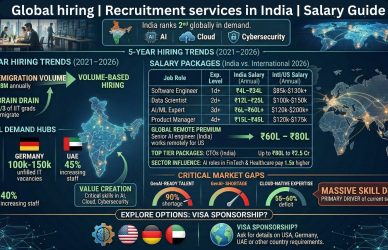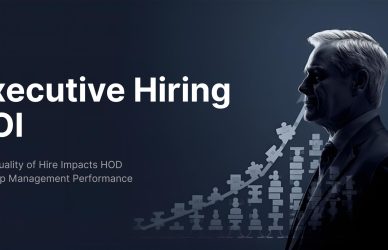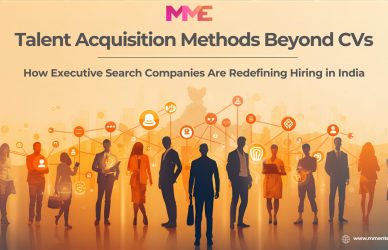Introduction: Why PEO Services Are Crucial in 2025
Overview of the Evolving Business Landscape
The global business environment in 2025 is marked by rapid advancements in technology, increasing globalization, and a complex regulatory framework. Companies are striving to remain agile and competitive while navigating challenges such as remote workforce management, diverse talent acquisition, and ever-changing labor laws. In this dynamic landscape, efficient management of human resources and administrative tasks has become a cornerstone for success.
Importance of Outsourcing HR and Administrative Tasks
Outsourcing HR functions allows businesses to focus on their core operations without being bogged down by time-consuming administrative responsibilities. These tasks, which include payroll processing, employee benefits management, and compliance tracking, can be resource-intensive. By leveraging Professional Employer Organizations (PEOs), companies can access specialized expertise, ensuring that HR operations run smoothly and efficiently. This not only saves time and costs but also enhances employee satisfaction by offering streamlined and professional services.
The Role of PEOs in Ensuring Compliance and Reducing Operational Burdens
PEOs play a pivotal role in helping businesses stay compliant with local and international labor laws, which are increasingly intricate. They take on the responsibility of managing compliance-related risks, such as adhering to tax regulations, workplace safety standards, and employee rights. By acting as co-employers, PEOs alleviate the operational burdens on companies, allowing them to scale their workforce confidently while avoiding potential legal pitfalls. This partnership enables businesses to focus on strategic growth initiatives without the distraction of administrative complexities.

What Are PEO Services? A Comprehensive Overview
Definition and Primary Functions of Professional Employer Organizations
Professional Employer Organizations (PEOs) are specialized firms that partner with businesses to provide comprehensive HR management services. Operating under a co-employment model, PEOs assume responsibility for key HR functions, such as payroll processing, employee benefits administration, compliance management, and recruitment support. By acting as co-employers, PEOs streamline administrative burdens and ensure that businesses meet legal requirements while focusing on strategic growth. This partnership enables businesses to access a team of HR experts without the need for an in-house department, making PEO services particularly valuable for small and medium-sized enterprises (SMEs)
.
How PEOs Differ From Other HR Outsourcing Models
PEOs differ from other HR outsourcing models, such as administrative service organizations (ASOs) and HR consultants, in their approach and scope of services. While ASOs provide administrative support without taking on legal responsibility for compliance, PEOs engage in co-employment. This means the PEO shares employer responsibilities, such as managing payroll taxes, offering benefits under their group plans, and ensuring adherence to labor laws. Similarly, HR consultants focus on providing strategic advice but do not typically handle day-to-day HR tasks. The co-employment arrangement sets PEOs apart, offering a more integrated and comprehensive solution for businesses.
Key Benefits: Cost Efficiency, Compliance, and Employee Satisfaction
PEO services deliver several key benefits that make them indispensable for modern businesses:
Cost Efficiency: By pooling employees across multiple client organizations, PEOs secure better rates for benefits like health insurance and retirement plans. This reduces costs for individual businesses while offering competitive packages to employees. Additionally, outsourcing HR tasks eliminates the need for a large in-house HR team, reducing overhead expenses.
Compliance Management: Navigating the complex and evolving landscape of labor laws can be challenging. PEOs ensure compliance with local, state, and federal regulations, reducing the risk of penalties and legal disputes. Their expertise in tax filings, workplace safety standards, and employee rights provides peace of mind to employers.
Employee Satisfaction: Access to high-quality benefits, timely payroll processing, and professional HR support enhances employee satisfaction. PEOs help businesses attract and retain top talent by offering competitive benefits and fostering a positive work environment.
By combining these advantages, PEOs empower businesses to focus on innovation and growth while handling critical HR and administrative tasks seamlessly.

Top Features to Look for in a PEO Provider
Payroll Processing and Compliance
One of the most critical features of a PEO provider is efficient and accurate payroll processing. A top-tier PEO ensures that employees are paid on time, whether they are full-time, part-time, or contract workers. Beyond processing payroll, PEOs manage tax filings, handle deductions, and ensure compliance with local, state, and federal regulations. This compliance aspect is invaluable, as it helps businesses avoid penalties related to errors or missed deadlines. A reliable PEO provider takes on these responsibilities, giving businesses peace of mind and ensuring smooth operations.
Employee Benefits Administration
PEOs are instrumental in providing access to high-quality employee benefits, such as health insurance, retirement plans, and wellness programs. By pooling resources across multiple clients, PEOs can secure competitive rates and offer benefits typically available only to larger corporations. This helps businesses attract and retain top talent while maintaining cost efficiency. Additionally, a good PEO simplifies benefits administration by managing enrollments, claims processing, and compliance with benefits-related regulations like the Affordable Care Act (ACA).
Risk Management and Workers’ Compensation
Managing risks and ensuring workplace safety are crucial for any business. A reputable PEO provider offers risk management services that include assessing workplace hazards, implementing safety programs, and providing guidance on regulatory compliance. PEOs also handle workers’ compensation insurance, ensuring coverage is both comprehensive and cost-effective. By taking on these responsibilities, PEOs reduce the administrative burden on businesses and minimize the risk of workplace accidents and associated liabilities.
Recruitment and Onboarding Support
Recruitment and onboarding are essential for building a strong workforce, and a good PEO provider offers support in these areas. From crafting job descriptions to managing candidate screenings and interviews, PEOs help streamline the hiring process. Once a candidate is selected, the PEO ensures a smooth onboarding experience by handling documentation, setting up payroll and benefits, and providing orientation support. This efficient approach enhances the overall candidate and employee experience, fostering long-term retention.
Technology and Automation Capabilities
In today’s digital age, technology is a key differentiator for PEO providers. The best PEOs offer robust platforms that automate HR tasks, such as payroll processing, benefits enrollment, and compliance tracking. These systems often include employee self-service portals, where workers can access pay stubs, update personal information, and manage benefits at their convenience. Automation not only improves efficiency but also reduces errors and enhances data security, ensuring that sensitive employee information is well-protected.
By focusing on these features, businesses can select a PEO provider that aligns with their needs, reduces administrative burdens, and enhances overall workforce management.

Best PEO Service Providers in 2025: A Detailed List
Provider 1: Overview, Specialties, and Unique Offerings
MME
MME has established itself as a leader in the PEO industry, offering a comprehensive suite of services to businesses of all sizes. Known for its robust payroll processing capabilities and exceptional compliance expertise, MME specializes in managing multi-jurisdictional complexities. One of its standout offerings is its employee engagement programs, which include wellness initiatives and professional development opportunities. With a focus on building strong employer-employee relationships, MME ensures that its clients not only retain top talent but also cultivate a positive work culture.
Provider 2: Industry Focus and Technology Edge
HR Tech Partners
HR Tech Partners is recognized for its cutting-edge technology and focus on specific industries such as technology, healthcare, and finance. Leveraging advanced HR management software, this provider streamlines payroll, benefits administration, and compliance tracking through an intuitive cloud-based platform. The integration of AI-driven analytics offers actionable insights into workforce trends, enabling companies to make data-informed decisions. With a commitment to innovation, HR Tech Partners also supports remote workforce management, making it a top choice for companies embracing hybrid work models.
Provider 3: Global Reach and Scalability
PEO International
For businesses with international aspirations, PEO International is the go-to provider. With operations spanning over 50 countries, this provider excels in navigating global compliance, tax regulations, and cross-border payroll. Its ability to scale services rapidly to match business growth ensures seamless expansion into new markets. PEO International also offers multilingual HR support, catering to diverse workforces. Their expertise in handling cultural nuances and varying labor laws makes them an invaluable partner for businesses looking to operate on a global scale.
Provider 4: Customization and Sector-Specific Services
Tailored HR Solutions
Tailored HR Solutions is celebrated for its ability to customize PEO services based on industry-specific needs. Whether working with startups, retail businesses, or manufacturing firms, this provider designs bespoke packages to align with unique operational goals. Their sector-specific compliance expertise is a major draw, ensuring that clients meet regulations while optimizing HR functions. Additionally, Tailored HR Solutions offers flexible pricing models, making it an excellent choice for businesses seeking highly personalized services without compromising on quality.
Provider 5: Affordable Pricing and Client Testimonials
Budget PEO Services
Budget PEO Services has gained a reputation for delivering high-quality solutions at affordable rates, making it ideal for small and medium-sized enterprises. Their transparent pricing structure and no-hidden-costs approach appeal to cost-conscious businesses. Client testimonials frequently highlight the provider’s outstanding customer support, quick response times, and user-friendly platforms. Budget PEO Services focuses on simplifying HR tasks such as payroll and benefits administration while maintaining compliance, allowing businesses to concentrate on their core activities without breaking the bank.
By understanding the strengths and specialties of these top PEO providers, businesses can make informed decisions when selecting the ideal partner for their HR and administrative needs. Each of these companies brings unique value, ensuring options that cater to various industries, scales, and budgets.

How to Choose the Right PEO for Your Business
Assessing Company Size and Needs
The first step in choosing the right PEO is evaluating your business’s size and specific requirements. Small businesses might prioritize cost-effective solutions, while larger organizations may need advanced services like global payroll management or specialized compliance support. Determine whether you need a comprehensive package or specific HR functions, such as payroll processing, employee benefits administration, or risk management. Understanding your needs will help you narrow down providers that align with your business goals and operational scale.
Evaluating Industry Expertise
Industry-specific expertise is a crucial factor in selecting a PEO. Different sectors face unique challenges, such as compliance with specialized labor laws or navigating industry-specific tax regulations. For example, a healthcare business might need a PEO familiar with HIPAA compliance, while a construction company might require support with OSHA safety standards. Evaluate the PEO’s experience in your industry by reviewing their client portfolio or requesting case studies. Providers with relevant expertise can offer tailored solutions, ensuring smooth operations and regulatory adherence.
Reviewing Service Contracts and Flexibility
Carefully examine the service contracts to ensure clarity on the scope of services, pricing, and exit clauses. Flexibility is key; your business needs might evolve over time, and the PEO should be able to adapt to those changes. Look for providers that offer scalable solutions, allowing you to expand or modify services as your company grows. Additionally, check whether the PEO’s contract includes provisions for terminating the agreement without hefty penalties if the partnership doesn’t meet expectations.
Checking Client Reviews and Reputation
Client reviews and the provider’s reputation in the market are strong indicators of service quality. Look for testimonials on the provider’s website, but also seek unbiased reviews from independent platforms or industry forums. High ratings for customer support, service reliability, and expertise often indicate a trustworthy PEO. Reach out to references provided by the PEO to gain insights into their real-world performance, responsiveness, and impact on client businesses.
By focusing on these factors, businesses can identify a PEO that aligns with their goals, industry, and budget, ensuring a partnership that adds long-term value.

PEO Trends to Watch in 2025
AI Integration and Automation
Artificial intelligence (AI) and automation are transforming the PEO landscape in 2025. PEOs are leveraging AI to optimize HR processes such as payroll, benefits administration, and compliance tracking. Chatbots powered by AI are increasingly being used to provide instant support for employee queries, enhancing response times and accuracy. Automation is also streamlining repetitive tasks, reducing errors, and freeing up HR professionals to focus on strategic initiatives. Predictive analytics, enabled by AI, allows businesses to forecast workforce needs and trends, making PEOs indispensable partners in workforce planning.
Global Workforce Management
With businesses continuing to expand their operations globally, PEOs are focusing on offering robust global workforce management solutions. These include handling cross-border payroll, ensuring compliance with international labor laws, and managing tax obligations in multiple jurisdictions. PEOs are also providing multilingual support and expertise in cultural nuances to help companies effectively manage diverse teams. This trend reflects the increasing demand for seamless integration of global operations and the ability to support remote and distributed teams.
Data Security and Compliance Enhancements
As the volume of sensitive employee data managed by PEOs grows, data security has become a top priority. In 2025, PEOs are implementing advanced cybersecurity measures, such as encryption, multi-factor authentication, and real-time threat detection, to safeguard client data. Compliance with stringent data protection regulations, such as GDPR and CCPA, is a key focus, ensuring that businesses partnering with PEOs are not exposed to legal risks. PEOs are also investing in regular audits and security certifications to maintain trust and credibility.
Increasing Demand for Hybrid Workforce Support
The hybrid workforce model, which combines remote and in-office employees, continues to gain popularity in 2025. PEOs are adapting by offering tailored solutions to manage the unique challenges of this model. Services include remote onboarding, flexible benefits administration, and tools to monitor productivity without invading employee privacy. PEOs are also providing resources to support team collaboration and communication across locations, ensuring that hybrid teams remain engaged and productive.
Sustainability in Employee Benefits
Sustainability has become a growing concern for employees and employers alike, influencing the benefits offered by PEOs. Providers are incorporating eco-friendly initiatives into their benefits packages, such as green commuting incentives, wellness programs promoting sustainable practices, and support for volunteer opportunities in environmental projects. These benefits align with the values of environmentally conscious employees, helping businesses attract and retain top talent while promoting a positive brand image.
By keeping pace with these trends, businesses can harness the full potential of PEO services in 2025, ensuring enhanced operational efficiency, compliance, and employee satisfaction.

Challenges and Risks Associated with PEOs
Misunderstanding Co-Employment Relationships
One of the primary challenges businesses face when working with a PEO is misunderstanding the concept of co-employment. In a co-employment arrangement, both the PEO and the client company share certain employer responsibilities. While this allows the PEO to handle HR tasks such as payroll, benefits, and compliance, the client company retains control over day-to-day operations and decision-making. Confusion about these roles can lead to disputes or unmet expectations. It’s crucial for businesses to clearly understand the scope of the PEO’s responsibilities and how they complement internal operations.
Hidden Costs and Contract Terms
Another significant risk is the potential for hidden costs within PEO contracts. Some providers may advertise low initial fees but include additional charges for services such as specialized compliance support, employee terminations, or technology access. Businesses that don’t thoroughly review and negotiate contract terms may find themselves incurring unexpected expenses. Transparency in pricing and a clear understanding of the services included in the agreement are essential to avoiding financial surprises and ensuring the partnership remains cost-effective.
Ensuring Proper Alignment with Business Goals
Aligning the PEO’s services with a company’s specific goals and industry needs is another critical challenge. A mismatch between the PEO’s expertise and the company’s operational requirements can result in subpar service delivery and unmet objectives. For example, a PEO lacking industry-specific compliance knowledge may expose the business to legal risks. Businesses must evaluate potential providers carefully, ensuring their capabilities, experience, and service offerings align with the company’s long-term goals and operational priorities.
By addressing these challenges proactively, businesses can establish a productive relationship with their PEO, maximizing the benefits of the partnership while minimizing associated risks.

Case Studies: Successful PEO Partnerships in 2025
Company A: Growth Through Streamlined HR Processes
A mid-sized technology firm, Company A, faced challenges managing payroll and benefits for its rapidly growing workforce. By partnering with a PEO, the company automated payroll processing, streamlined benefits administration, and ensured compliance with labor laws. The PEO’s advanced HR technology reduced administrative burdens, allowing the company to focus on product innovation and market expansion. Within a year, Company A reported a 30% increase in operational efficiency, enabling it to scale its workforce by 50% without added stress on internal resources. This partnership showcased how leveraging a PEO’s expertise can directly support business growth.
Company B: Enhancing Employee Engagement and Retention
Company B, a healthcare services provider, struggled with high employee turnover due to a lack of competitive benefits and engagement initiatives. By engaging a PEO, the company gained access to comprehensive benefits packages, including health insurance, retirement plans, and wellness programs, at rates typically reserved for larger organizations. The PEO also introduced employee engagement tools and resources, such as regular surveys and professional development opportunities. Over 18 months, Company B experienced a 20% reduction in turnover rates and a significant improvement in employee satisfaction scores. This case illustrates the role of PEOs in creating a more engaged and loyal workforce.
Company C: Expanding Globally With a PEO Partner
Company C, a retail brand, planned to expand into multiple international markets but was overwhelmed by the complexities of global compliance and payroll management. Partnering with a PEO specializing in global workforce solutions allowed the company to navigate different countries’ labor laws, tax regulations, and cultural nuances. The PEO managed cross-border payroll seamlessly and provided on-the-ground HR support in each new market. As a result, Company C successfully entered five new countries within two years, achieving its expansion goals ahead of schedule. This partnership highlights the value of PEOs in enabling businesses to scale globally without operational setbacks.
These case studies demonstrate how PEOs can address diverse business challenges, from operational inefficiencies to workforce retention and global expansion, helping companies thrive in competitive markets.

Conclusion: Embracing the Best PEO Service Providers in 2025
Summary of the Advantages of Working with a PEO
Partnering with a Professional Employer Organization (PEO) offers businesses a wealth of advantages. From streamlining HR processes and payroll management to providing access to competitive employee benefits, PEOs enable companies to focus on their core operations. Additionally, PEOs handle complex compliance issues, reducing the risk of costly errors or legal challenges. This support not only saves time and resources but also enhances overall efficiency and workforce satisfaction.
The Impact on Business Scalability and Compliance
A significant benefit of working with a PEO is the ability to scale operations effectively. Whether a company is hiring locally or expanding into global markets, PEOs provide the expertise needed to navigate evolving labor laws and manage diverse workforces. Their emphasis on compliance ensures that businesses meet regulatory requirements while staying focused on growth initiatives. This makes PEOs particularly valuable for companies operating in competitive and highly regulated industries.
Encouragement to Evaluate and Adopt a PEO for Sustainable Growth
In 2025, leveraging the services of a PEO is not just a strategic decision but a necessity for businesses looking to thrive. By carefully evaluating potential providers and aligning their services with organizational goals, companies can unlock the full potential of PEO partnerships. Whether it’s enhancing employee engagement, ensuring compliance, or scaling globally, embracing a PEO positions businesses for sustainable growth in an increasingly complex and competitive market landscape.




